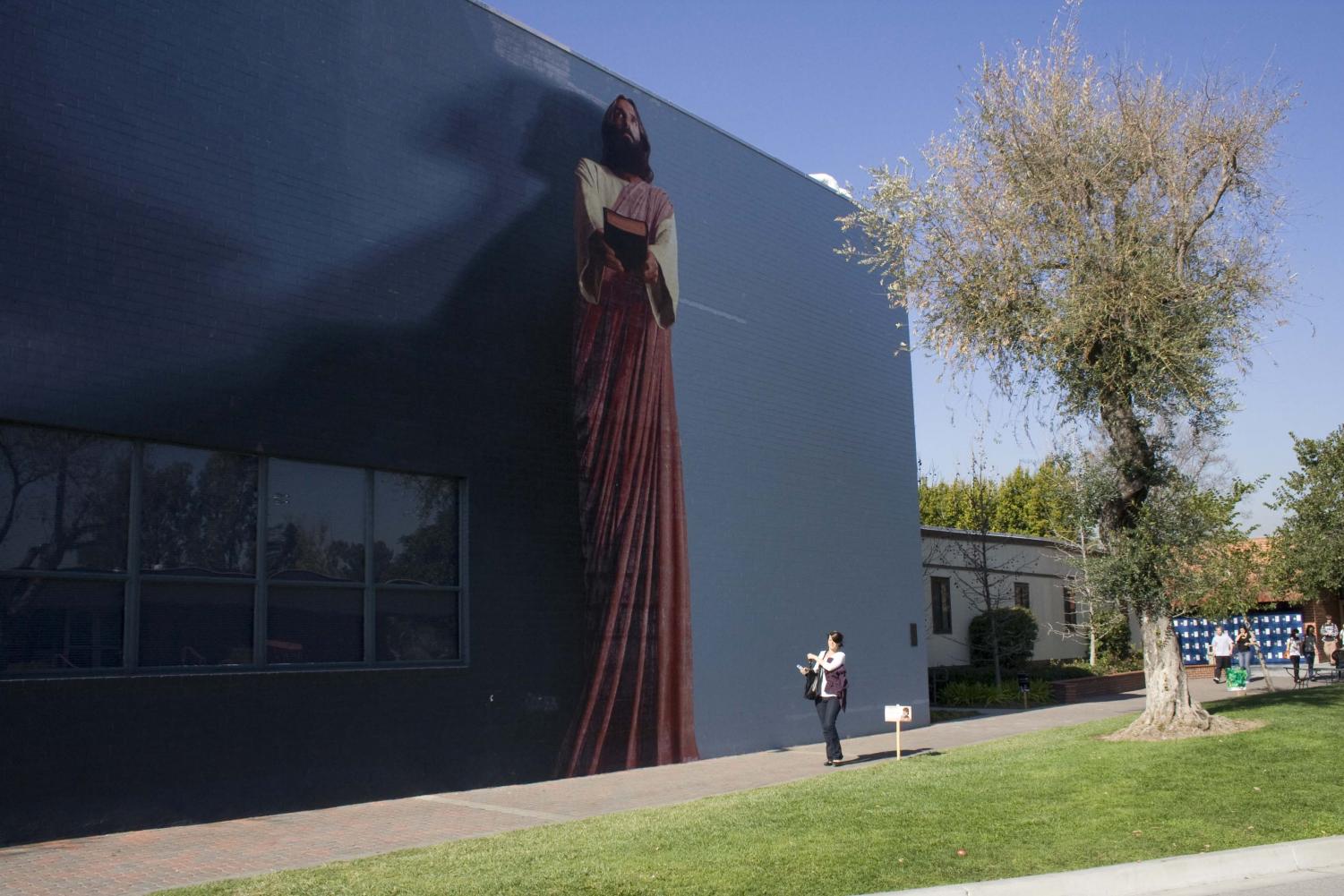In Biola’s foundation Lyman Stewart proclaimed, “All people, without reference to race, color, class, creed [denomination] or previous condition, will ever be welcome [to Biola]…” To this day, Biola carries out Stewart’s hospitable words, admitting various ethnicities and genders.
Although classrooms are encouraged to be diverse, Biola may not reflect such a welcoming image in the case of black students.
African American students have the worst retention rate at Biola. Currently, the average for African American retention from freshman to sophomore year is 65.25 percent, compared to that of Latinos, whites and Asians, according to Tamra Newman, Assistant Director of Undergraduate Admissions Multi-Ethnic Outreach. The causes are currently being reviewed.
Newman, who is African American, graduated from Biola. She can still recall her tough experience on campus. Having little familiarity with Biola, she was shocked to see the giant “white Jesus” mural and hated SOS week because she didn’t fit in.
Newman eventually found fellow students to vent frustrations to and discovered how her faith fit in.
“God changed my heart in how I approached Biola because Biola hurt me in a lot of ways,” she said.
Newman experienced a revelation of her purpose as a student of color. Now, as an admissions counselor, Newman recruits students of color and relates to current students who may be having a hard time.
The battle against racial turmoil in higher education continues despite leaps made in history. After the Brown v. Board of Education ruling in 1954, racial segregation became illegal. Yet, racial problems still continued to emerge.
Difficulties affect blacks today, even at Biola.
Senior Ronald Johnson arrived at Biola expecting to not fit in. He prepared to attend Biola solely for an education, not to make friends. He recalled a time he felt discriminated against when he was stopped by campus safety his freshman year and asked to show his ID card.
“It was obvious they stopped me because I was African American, and I didn’t fit the bill,” he said. “It was enraging because I came from a background of being racially profiled in Los Angeles by the LAPD and then to come to a university setting that’s supposed to be Christian … I don’t want to get the same treatment.”
Jerry Powell, chief of campus safety, said that out of his year and a half tenure, he has not received a discrimination report but reassures students that any form of disproportionate treatment is not permitted. Campus safety, Powell said, takes a color-blind approach and does not track information on race.
“If you were to say how many persons of color were stopped for a traffic violation, I couldn’t tell you,” he said. “We don’t think it is important that a person’s gender or race is relevant to fair treatment.”
Powell recommends students who feel singled out to speak up.
“On our web site, I encourage people … to bring to our attention anytime a student feels they have not been handled in a manner that’s professional,” he said. “We immediately document that and assign a manager to investigate the situation.”
Ralph Miley, a junior transfer student, experienced a similar situation to Johnson’s at his previous school, Azusa Pacific University.
Though it’s been a short period, Miley described his experience so far at Biola as positive. He was informed of the racial tension on campus and has attended racial reconciliation chapels where he discovered it for himself.
“Race is an issue because why would there be a chapel about it if there wasn’t?” said Miley.
The Racial Reconciliation Chapel Series aims to teach diversity, celebrate different styles of music in worship and enhance the process of Christian racial reconciliation, according to Biola’s web site.
In addition to racial reconciliation chapels, programs held by Multi-Cultural Relations attempt to help students adapt and discuss issues in a Christian setting. This past weekend marked the 12th annual Student Congress on Racial Reconciliation (SCORR) conference. Despite Biola’s efforts, some students say it’s not enough.
Junior Shalom Bako, a native of Nigeria, moved to America as a teen. Having little knowledge of American colleges, Bako didn’t know what to expect but knew he was different. He was forced to make adjustments, not only as a black student but as an international student.
He thinks Biola’s attempts to make the campus more diverse-friendly could improve.
“You can’t throw [students of color] into the white culture and say, ‘Go feel comfortable.’ Biola needs to help them slowly and gradually,” Bako said.
As the black retention rates stay low and as meetings are being scheduled to discuss solutions, Newman advises current students who may be struggling with racial issues to not feel ashamed of their culture but to cultivate it. She advises black students to embrace their white brothers and sisters but to not be afraid of telling them the truth about their feelings and frustrations.







